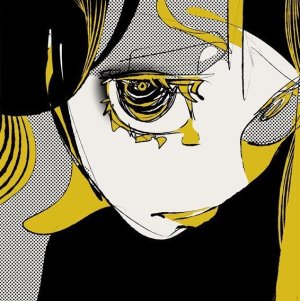At first glance, it couldn't be more clear that these two dramas are quite different. Beyond Evil maintains a gritty, almost noir look at a quiet, small everyone-knows-everyone town and how a murder undoes it. Tomorrow, meanwhile, gives a more dimensional and intensely emotional take on suicide.
However, Tomorrow embodies the very intense, psychological thrills that Beyond Evil has been praised for. On a closer look, these dramas are quite similar in taste.
- Both dramas are play on morals at the core of the multiple protagonists. With no character, little or large in the screen time, going without an in-depth characterisation that adds meaning to the plot. This is only exacerbated by the close-knit setting of the main characters, whom, being grouped together like this (Tomorrow with how they work together and Beyond Evil in how everyone lives in the same town) pushes more emotional, human and brilliant mysteries at the core of the audience's thoughts.
- Both dramas gather plentiful praise for the dialogue and interactions between characters. The dynamic entails a cleverly dissected mystery that sustains itself across 16 episodes. Our characters are decadent and haunted, spirited on by sensitive themes like mental breakdowns, death and morally and ethically ambiguous behaviour, which neither show shies away from. Instead, these dramas embody it carefully into each character, thus creating the perfect dynamic of being flawed, knowing you're flawed, embracing it and then dealing with the aftermath.
- Death is at the centre of these dramas, but used in different ways, as such, showing the flexibility and range of plot to play with but also the expansion of these mini pocket universes whereby the dramas acknowledge the setting and challenge it (be it in a small-town or in heaven). In Tomorrow, death is embodied through the Reapers and the suicides. It is central to the understanding of the agenda of the main characters, who are marred by the balance of living and dying. In Beyond Evil, death is concentrated within murder, thus creating the balance of the killer and the victim, thereby blurring the lines between this by challenging the morals of the main character and in the same way Tomorrow gives justification and beautiful explanation behind the act of suicide, Beyond Evil focuses on how a murderer is decided.
However, Tomorrow embodies the very intense, psychological thrills that Beyond Evil has been praised for. On a closer look, these dramas are quite similar in taste.
- Both dramas are play on morals at the core of the multiple protagonists. With no character, little or large in the screen time, going without an in-depth characterisation that adds meaning to the plot. This is only exacerbated by the close-knit setting of the main characters, whom, being grouped together like this (Tomorrow with how they work together and Beyond Evil in how everyone lives in the same town) pushes more emotional, human and brilliant mysteries at the core of the audience's thoughts.
- Both dramas gather plentiful praise for the dialogue and interactions between characters. The dynamic entails a cleverly dissected mystery that sustains itself across 16 episodes. Our characters are decadent and haunted, spirited on by sensitive themes like mental breakdowns, death and morally and ethically ambiguous behaviour, which neither show shies away from. Instead, these dramas embody it carefully into each character, thus creating the perfect dynamic of being flawed, knowing you're flawed, embracing it and then dealing with the aftermath.
- Death is at the centre of these dramas, but used in different ways, as such, showing the flexibility and range of plot to play with but also the expansion of these mini pocket universes whereby the dramas acknowledge the setting and challenge it (be it in a small-town or in heaven). In Tomorrow, death is embodied through the Reapers and the suicides. It is central to the understanding of the agenda of the main characters, who are marred by the balance of living and dying. In Beyond Evil, death is concentrated within murder, thus creating the balance of the killer and the victim, thereby blurring the lines between this by challenging the morals of the main character and in the same way Tomorrow gives justification and beautiful explanation behind the act of suicide, Beyond Evil focuses on how a murderer is decided.
Beyond Evil is an intense, emotional and thrilling rollercoaster of a ride to watch. It plays on the same psychological factors that embody Link: Eat, Love, Kill. On a closer look, both dramas can be considered similar to each other but equally unique in their respective fields, with Link: Eat, Love, Kill having a slightly more supernatural feel due to the telepathy.
- Both dramas centre on the disappearance of the male lead's sister. It haunts them in different ways, however. Gye Hoon (L:ELK) is pitiful in his guilt-ridden state which is marred by his surroundings and efforts to balance both the past and present. Beyond Evil's Dong Sik is far more haunted and decadent. This becomes especially clear in the later episodes.
- The focus of the drama is within a small town where "everyone knows everyone" meaning that the townspeople become suspects of old and new cases.
- Funnily enough, the actor Yeo Jin Goo is the main lead in both dramas. If you enjoy his performance in one drama, chances are you'll enjoy his character in another.
- Both dramas do not shy away from sensitive themes such as murder, emotional breakdowns etc. They strike a chord with you from the psychological thriller aspect as well as the mystery.
- The police remain a steady but sustained part of the drama, with their own investigations that circle or sometimes overlap with the pathing of the main leads.
- The dynamic between the main leads: in Beyond Evil, Dong Sik and Joo Woon butt heads with a frisky Enemy to 'Friends' character development. One is suspicious of the other. This is similar to Gye Hoon and Da Hyun in a way, although L:ELK is somewhat light-hearted at the ends. Both find a nice balance between comedy and the gravity of the situation.
- Both dramas centre on the disappearance of the male lead's sister. It haunts them in different ways, however. Gye Hoon (L:ELK) is pitiful in his guilt-ridden state which is marred by his surroundings and efforts to balance both the past and present. Beyond Evil's Dong Sik is far more haunted and decadent. This becomes especially clear in the later episodes.
- The focus of the drama is within a small town where "everyone knows everyone" meaning that the townspeople become suspects of old and new cases.
- Funnily enough, the actor Yeo Jin Goo is the main lead in both dramas. If you enjoy his performance in one drama, chances are you'll enjoy his character in another.
- Both dramas do not shy away from sensitive themes such as murder, emotional breakdowns etc. They strike a chord with you from the psychological thriller aspect as well as the mystery.
- The police remain a steady but sustained part of the drama, with their own investigations that circle or sometimes overlap with the pathing of the main leads.
- The dynamic between the main leads: in Beyond Evil, Dong Sik and Joo Woon butt heads with a frisky Enemy to 'Friends' character development. One is suspicious of the other. This is similar to Gye Hoon and Da Hyun in a way, although L:ELK is somewhat light-hearted at the ends. Both find a nice balance between comedy and the gravity of the situation.








